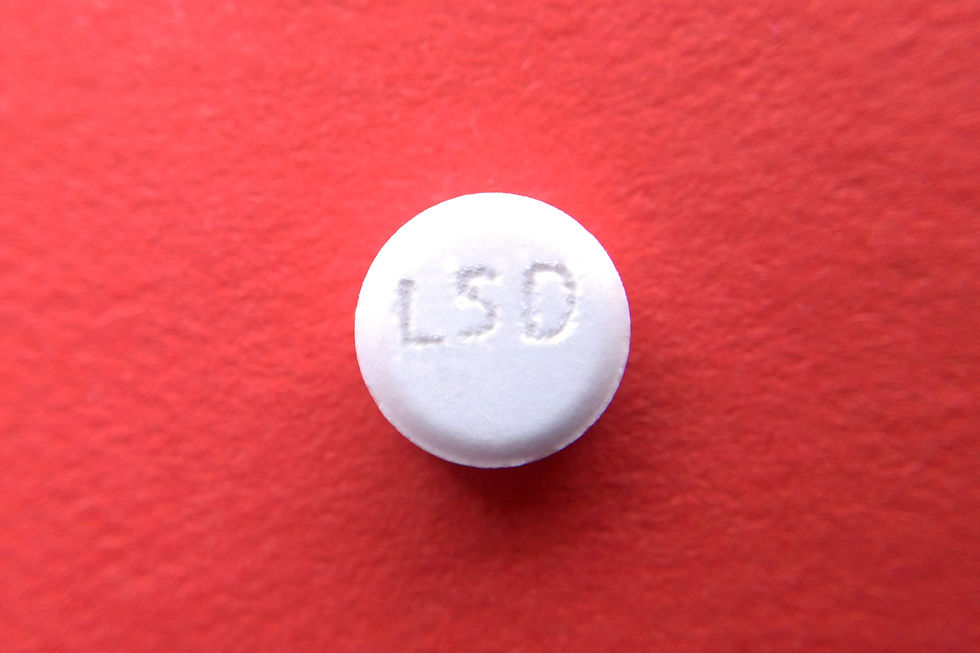New Research Findings Might Explain The Cognitive Benefits Of LSD Microdosing
- Anahita Anais
- Sep 3, 2021
- 2 min read
Updated: Jan 9, 2023

Microdosing LSD has been the go-to practice for bio-hackers from Silicon Valley to the Wall Street alike; many reporting enhanced focus, creativity, and mood.
While anecdotal reports have long suggested cognitive benefits with LSD microdosing, the limited research in this space has not been able to verify the reported benefits; in fact, a recent study found LSD microdosing to be no more beneficial than a placebo. New research findings might be changing that.
A recently published study sheds like on the possible mechanisms behind the reported cognitive benefits of LSD microdosing by studying its effect on increased neuroplasticity in the brain.
The new placebo-controlled, within-subject study investigated the effect of single low doses of LSD (5, 10, and 20 micrograms) on circulating BDNF levels in healthy volunteers.
Brain-Derived Neurotrophic Factor (BDNF) is a protein that in humans is encoded by the BNFD gene which is a part of the neurotrophin family of growth factors. Neurotrophin growth factors are related to the canonical nerve growth factor and are found in the brain and the periphery.
The presence of BDNF in blood plasma is used to measure the levels of neuroplasticity in humans. Benzinga reports: "Research has shown possible links between BDNF levels and conditions such as depression, obsessive-compulsive disorder, Alzheimer’s disease, diabetes, Huntington’s disease, Rett syndrome, dementia, anorexia, and bulimia, according to the Beckley Foundation, who co-sponsored the study along with Maastricht University in the Netherlands.
Increased levels of BDNF are also associated with improved cognitive functioning and mental health as well as short- and long-term memory.
“This study provides preliminary evidence that low doses of LSD increase BDNF plasma levels in healthy volunteers up to 6 h after administration, suggesting a window of opportunity for a therapeutic response and cognitive enhancement that might be of use in patient populations,” reads the study."




